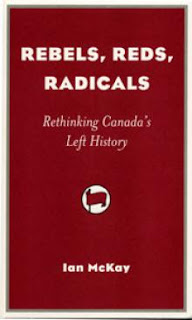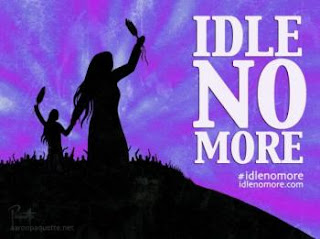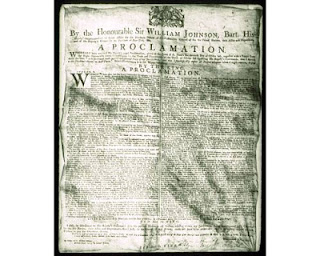It has been great to see that TerryGlavin’s column in the Ottawa Citizen last week
has inspired such an interesting debate. Most have been critical, if
judiciously so, of Glavin and
Granatstein and me. Those I’ve seen include the comments by Jerry Bannister and
Steve Hewitt on my own blog, a post by Jim Clifford over at Active History, and
another by Roderick Benns on his blog. There was fair bit of amusing chatter on
twitter as well.

I ought to clarify one point up front. It
was Granatstein – and not me – who fretted about the absence of a ‘proud national
story'. Personally I absolutely agree with Jerry Bannister who says ‘My job is to teach Canadian history, not to
instill nationalist pride in what our ancestors did.’ In fact, this was exactly
what I said to Glavin. He asked me how I differed from Granatstein and this is
the point I made: that I had no desire to see history celebrate anything. Our
duty is to understand. In fact, I made just this point in a
post last year –
the prime duty of historians isn’t to respect anything. Our only duty is to be
curious.
‘So why go along with
Granatstein?’ you might ask. Why talk about the historical community as being
hijacked by activists?
I’m very conscious
that Steve Hewitt might be right when he says that to make these comments is to
invite reprisals against the profession and to only make the case for the
funding of things like archives even more tenuous. But my case would be as
follows:
We are doing it to
ourselves.
While you’ll often
hear historians arguing against Granatstein and others who claim that history
ought to serve nationalist purposes, what you don’t often hear are the voices
of historians criticizing the way activists try to make political uses of our
history in the exact same way. We seem, en masse, ready to throw Granatstein
under the bus, but we mostly look the other way when others (our own
colleagues) use history in the same deliberately partisan ways.
Here are a couple of
examples, though there could be many, many more.
Example 1
So, for example, the
most important concept animating historical discussion in the country for more
than a decade has been Ian Mckay’s Marxist reading of Canadian history as a
project of ‘liberal order’. You can’t stumble through the beer tent at
the CHA without hearing about yet
another new project talking about the ‘liberal’ (read oppressive) nature of
some topic in Canadian history.

There have been some
very thoughtful critiques of McKay’s work, but I can’t think of anyone that has
come out and written about this as the kind of politically partisan rewriting
of history that it is. The political nature of the project is on the surface.
McKay even writes about this in his long introduction to the whole project,
Rebels, Reds, Radicals. This isn’t the
place to go into the ‘ins’ and ‘outs’ of McKay’s ideals. But let’s be clear.
The whole liberal order project as a way of rethinking Canadian history is
deliberately partisan in its intent and operation. In my view, historians
should take out from it the good ideas, but be very wary of when ideology
blinds one to what the evidence actually shows.
Example 2
A second example might
be the way historians have acted as spokespeople for aboriginal groups,
including the recent Idle No More movement. Here, many historians have taken it
upon themselves to explain the historical origins of many of the claims in the
movement, notably the history of treaty rights. Partly, this has been great
historical research, and in fact I gave a lecture to my own students on exactly
this point. (In fact, I imagine that my students would be surprised by what I
say below.)
But the history of
relations between aboriginal peoples in Canada is a case of how history has
been reshaped by activism in a different way: by questions we no longer ask,
issues we no longer talk about.
What do I mean? Here
I’m thinking of agency and power. Just about any recent (and here I mean over
several decades) work on aboriginal history emphasizes the agency of aboriginal
peoples. Historians have taken it upon themselves to make sense of aboriginal
actions, and have come up with some
fascinating research that shows the complexity of aboriginal peoples’ responses
to colonialism. This was a response to a previous historiography that was
largely concerned with the logic of building the Canadian nation state, and
largely didn’t examine aboriginal peoples’ actions on their own terms. But as this issue has taken over the
profession, the other side of the equation, the views of settlers, the
government, Euro-North American culture in general – have been ignored and ridiculously
simplified.
It’s now standard to
talk about how, in the period of early contact, aboriginal people had much more
power than we previously thought, and that early Canada was still really aboriginal
space. The implications for contemporary politics are direct: these really were
‘nations’ and relations between the early BNA or Cdn state and aboriginal
peoples really were on a nation-to-nation footing.

But so much of this
conclusion is based on silence – on not admitting that this position of
relative ‘equality’ was between, on the one side, entire aboriginal societies
and, on the other, a small handful of explorers and settlers at the initial
point of contact. When larger settlement occurred, and when European societies
took a much larger interest in aboriginal spaces, any notion of equality and
‘nation-to-nation’ dialogue quickly went out the window. In fact, this is what
lies behind the westward expansion of Canada and the United States, and the very
different experience in Canada. Much of the land in Canada, for a much longer
time, was considered marginal and not fit for settlement.
You don’t need to
follow Tom Flanagan’s morally bankrupt (in my view) justification for this
process to still see that too many historians of aboriginal peoples in Canada
have trumpeted the agency of aboriginal peoples because it meets the needs and
sympathies of contemporary politics. A fuller account of the past would be less
uniform in its assessment than what we have been reading for several decades.
I can’t resist adding
a couple of more examples:
Why is there no great
article/book on the sexual revolution in Canada? Answer – historians are too
busy telling us how it wasn’t revolutionary, how it was hetero-normative, etc.
Why aren’t Canadian historians
talking about the incredible rise in the standard of living of Canadians over
the course of the 20
th century? Why do we just continue to write
‘Yes, but…’ histories? Perhaps it would cause troubles to so many whose basic
line of thinking is essentially Marxist. (though see John Lanchester
writing inthe LRB for someone on the left, who says we need to deal with this fault in
Marx.)
No doubt many will
argue with much of what I’ve said above. But it’s worth thinking about this
when asking why the media doesn’t stop talking to Granatstein. Who else are they going to talk to? Nationalist
history is one thing. But Canadian historians specialize in anti-nationalist
history. Canadian historians seem bent on telling us that so many things that
you might think of as reasonably positive developments – universal education,
parliamentary democracy, the rule of law, etc – were actually inherently
oppressive. A more open approach to the past might lead us to, if not agree
with Granatstein all the time, at least not always
disagree.
My own sense is that
we need an update to his book Who Killed
Canadian History?
If I were to write it,
it would be called Do You Really Want to
Know About Canadian History? The gist would go something like this:
A full understanding of
Canadian history isn’t kind to any political agenda. Those on the left and
right both want to use the past for their own purposes. At the moment, those on
the right have more influence in government and in the mainstream media. Those
on the left have more room – though they aren’t alone – inside the academy. But
what we really need are historians who don’t find their arguments ready-made
for them by either partisan politics or academic theory (ie politics in pseudo-scientific disguise).
It’s too easy to sit
back and say that all of the politics is in the House of Commons, and that
academics are more professional in their assessments. Equally, it’s too easy to
say that everything is political so therefore, everything goes. Surely, all of
this means we just need to sit down and do what good historians always do: look
at the evidence; see things from as many different view-points as possible;
tell the story as best we can; continue the conversation.













